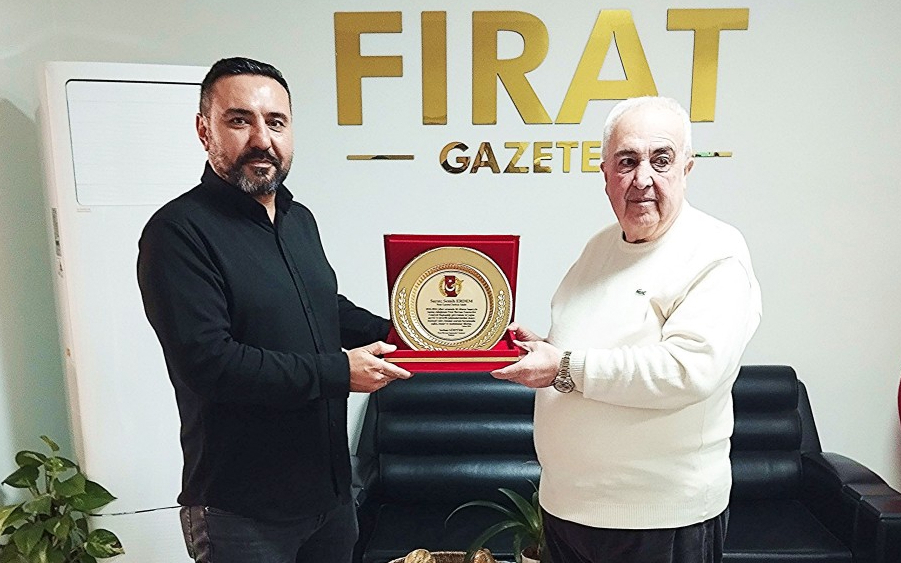In the current landscape of journalism, particularly in smaller cities like Elazığ, local reporters face significant challenges exacerbated by political and economic pressures. Journalists navigate threats, legal obstacles, and societal biases as they strive to uphold their professional independence. The experiences of local journalists reveal the harsh realities of practicing independent journalism while highlighting the importance of ethical reporting even amidst adversity.
| Article Subheadings |
|---|
| 1) A Local Journalist’s Struggle Against Pressures |
| 2) The Inequalities Faced by Women Journalists |
| 3) The Impact of Political Pressures on Reporting |
| 4) The Role of Ethics in Journalism |
| 5) Achieving Independence Amidst Adversity |
A Local Journalist’s Struggle Against Pressures
Among the many voices in Elazığ, Evren Demirdaş stands out as a dedicated journalist, facing multifaceted challenges in his reporting. With over 12 years of experience, he has encountered various forms of judicial harassment, a reality that many local journalists in Turkey face today. In his role as a local correspondent, Demirdaş emphasizes the burden of political pressures and the systemic obstacles that hinder journalists’ ability to report fairly and accurately.
Demirdaş has found himself at the center of multiple investigations and lawsuits — a form of intimidation designed to stifle his journalistic activities. According to him, the disinformation law has exacerbated these pressures, contributing to an environment where even accurate reporting can provoke legal backlash. “I try to practice my profession professionally,” he states, “but political pressure is an ever-present threat.” This sentiment is echoed nationwide among journalists working to uphold ethical principles while addressing issues critical to their communities.
The harsh reality is that local journalists like Demirdaş often find themselves marginalized, as political ties and favoritism disrupt their work. “I face political pressure and receive frequent veiled threats,” he explains. Such tactics, he believes, are intended to undermine credibility and suppress opposition, a sentiment reflecting a broader trend in local journalism across the region.
The Inequalities Faced by Women Journalists

While all journalists face challenges, female journalists in Elazığ face additional hurdles due to deeply ingrained sexist biases. Dilan Tuğba Maçit, the publisher of the weekly newspaper Siyasi Nabız, underscores her struggles in an environment where gender-based discrimination is rampant. “As a woman journalist, the biggest challenge here is sexist prejudice,” she states, revealing her battle against not only societal expectations but professional barriers.
Maçit explains that access to news sources is often hindered for women, as they find themselves doubting their professional competence in the eyes of others. “We have to work harder to prove ourselves,” she says. The challenges of engaging deeply with newsworthy topics can become a strenuous task, as male counterparts might disregard their insights based simply on gender assumptions.
In a profession that relies heavily on networking, the lack of solidarity among women journalists can further isolate them, building barriers that inhibit their professional growth. Despite these obstacles, Maçit is determined to represent female voices in her local community. “I see being a voice for women as both a duty and a source of motivation,” she asserts. This dual mission drives her commitment to independent journalism, a testament to her resilience against the prevailing norms.
The Impact of Political Pressures on Reporting
The killing of independent voices in journalism is neither new nor uncommon, particularly in regions marked by political unrest. Faik Akgün, the owner of elaziggercekleri.com, shares his own experiences of being fired under political pressure, reflecting a culture of intolerance toward dissent. His comments reveal a troubling landscape where independent reporting is considered an affront by those in power.
“I realize that practicing independent journalism in Elazığ isn’t feasible,” Akgün confesses, explaining that the sociological context of Anatolia creates a challenging environment for critical voices. He recounts incidents of being dismissed after covering sensitive issues, such as reporting on the societal ramifications linked to suicide among students, illustrating a troubling cycle of retaliation for honest reporting. “I created my own platform to continue reporting independently; I will not give up on showing people the reality,” he insists, embodying the spirit of resilience found within many local journalists.
The implications of such political pressures resonate throughout the sector; they not only hinder journalistic endeavors but also diminish the public’s access to unbiased information. Akgün represents a growing segment of journalists who are both critical of the political landscape yet driven to enlighten their communities despite the costs involved.
The Role of Ethics in Journalism

The protective nature of ethical journalism can serve as a buffer from some of the pressures faced by local reporters. Serkan Gürtürk, president of the Fırat Basin Journalists Association (FHGC), acknowledges the profound impact of adhering to ethical standards when reporting. He explains how transparency and accuracy can provide a strong defense against potential legal and societal backlash.
“We adhere to the 5W1H principle and report objectively and ethically,” he emphasizes. Such a commitment to high standards of journalism fosters trust among audiences and supports resilience in adverse conditions. Gürtürk has faced threats and intimidation attempts but asserts that maintaining integrity has allowed him to overcome these obstacles effectively. “Honest journalism minimizes the risks of facing obstacles,” he maintains, a powerful reminder of the enduring importance of ethics in the profession.
However, even with a commitment to ethical reporting, journalists often confront systemic impediments. Advertising dependencies on local government can skew news coverage, reinforcing a cycle where local economic pressures influence journalistic independence. As Gürtürk articulates, addressing these issues can foster an environment conducive to honest reporting, ultimately benefiting society at large.
Achieving Independence Amidst Adversity
The accounts from Elazığ illustrate a larger narrative of struggle and perseverance in journalism. Local journalists like Demirdaş, Maçit, Akgün, and Gürtürk represent a collective commitment to independent media, even while facing internal and external challenges. Across varying circumstances, their experiences highlight a shared resolve to emphasize truthful reporting.
This resilience is not merely a personal mission but also a broader movement advocating for freedom of the press. It demonstrates a passionate commitment among these local journalists to uphold the principles of their profession despite the feedback from surrounding political and social climates. The autonomy of such voices underscores the vital importance of independent journalism in safeguarding democratic values and informing citizens.
| No. | Key Points |
|---|---|
| 1 | Local journalists like Evren Demirdaş face significant legal and political pressures that threaten their independence. |
| 2 | Women journalists, such as Dilan Tuğba Maçit, encounter additional obstacles due to sexist stereotypes in the industry. |
| 3 | Political pressures often lead to job insecurity, as seen in the experience of Faik Akgün. |
| 4 | Ethical journalism is presented as a crucial factor in mitigating risks faced by reporters. |
| 5 | The independence of local journalists is vital for a thriving democracy and the promotion of truth in news reporting. |
Summary
The experiences of journalists working in Elazığ underscore the formidable challenges posed by political and societal dynamics in the field. Their stories highlight an unwavering dedication to ethical journalism amidst the pressures of prejudice, legal constraints, and economic hardship. These journalists strive to fulfill their roles as the public’s eyes and ears, facing adversity with resilience and commitment to truth. The ongoing issues they confront not only affect their personal careers but also resonate deeply within the communities they serve, emphasizing the essential role of independent media in maintaining a democratic society.
Frequently Asked Questions
Question: What are the main challenges faced by local journalists?
Local journalists face various challenges, including political pressures, legal obstacles, and societal biases that threaten their ability to report independently. These factors can lead to threats, lawsuits, and job insecurity.
Question: How do women journalists differ in their struggles compared to their male counterparts?
Women journalists often confront additional challenges rooted in sexism and discrimination, including unequal opportunities and access to sources, as well as societal prejudices regarding their competence in the field.
Question: Why is ethical journalism important in today’s context?
Ethical journalism is essential because it fosters trust and accountability, helps safeguard journalists from repercussions, and ensures that reporting remains honest and serves the public interest amidst various pressures.